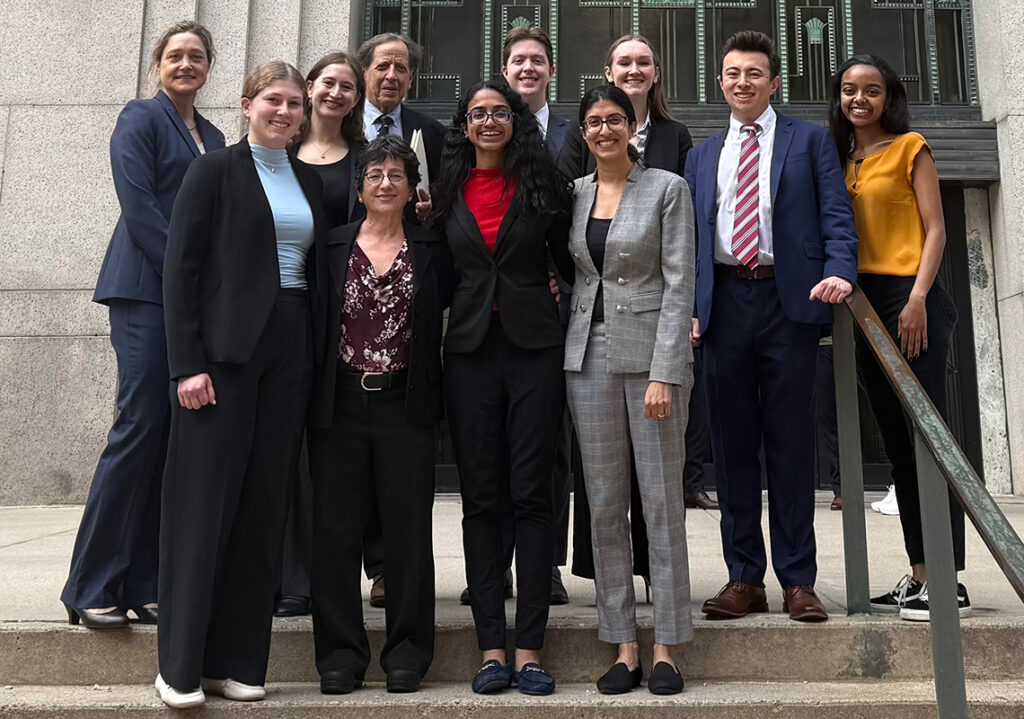The BC Law Civil Rights Clinic achieved a significant milestone in their ongoing lawsuit against the Massachusetts Department of Corrections (DOC) over its solitary confinement practices with incarcerated people. On April 15, Suffolk Superior Court granted class certification to nearly 200 incarcerated individuals in the Massachusetts correctional system.
The clinic, along with co-counsel Holland & Knight and Prisoners’ Legal Services, originally filed the suit, Evelyn v. Jenkins, on behalf of plaintiffs and class members in July 2024.
The case involves two types of units within the DOC where prisoners are allowed scant time outside of solitary confinement, which even then is often truncated or canceled. The suit alleges that these practices, along with inadequate access to other basic services, are illegal under the Massachusetts Criminal Justice Reform Act, other state and federal laws, and constitutions.
BC Law student Deepti Sailappan ’25, working under the supervision of Clinic Director Professor Reena Parikh, argued the assented-to motion for class certification before a Superior Court judge. Julia Brandenstein ’26, Dylan Burgess ’26, and John Hess ’26, also worked closely with Sailappan and co-counsel to prepare for the motion for class certification hearing.
“Having this motion for class certification granted represents a major step forward in this case and for our class members, who experience unlawful conditions daily and continue to reside in the most restrictive units in Massachusetts’ prison system,” said Brandenstein.
The class certification ruling now allows the lawsuit to proceed to classwide discovery, a major step forward for the suit and toward potential changes in these harmful practices.


